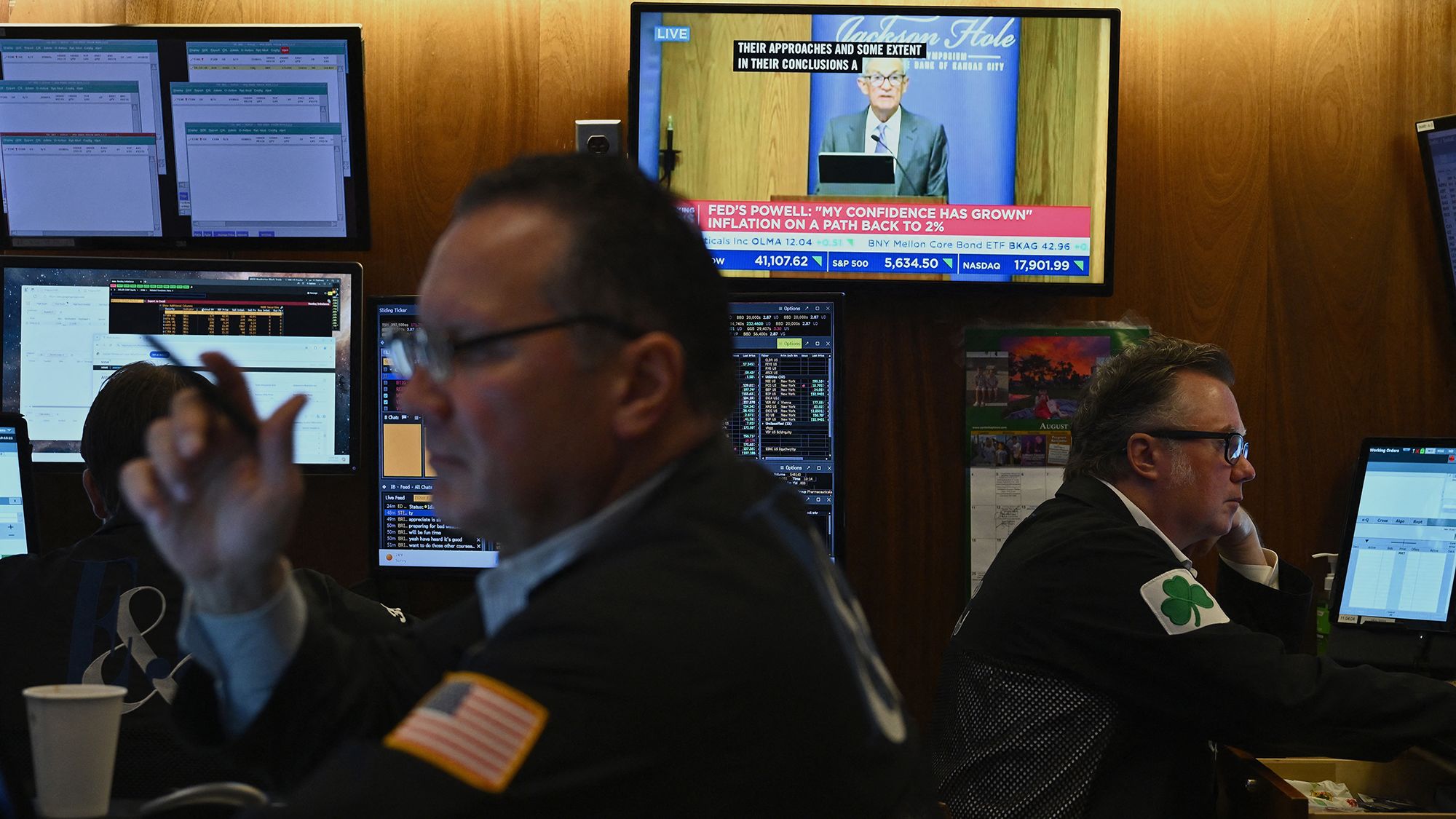US stocks opened mixed Monday morning as investors looked to a key earnings report and a slew of economic data points due later this week.
The Dow rose 95 points, or 0.2%. The S&P 500 gained 0.1% and the Nasdaq Composite lost 0.1%.
Global markets have gone on a wild ride this month. Japan’s benchmark Nikkei 225 index crashed and American stocks plunged in early August as the yen carry trade unraveled and a weak US jobs report sparked recession fears. Mixed earnings reports from the Big Tech giants who dominated this year also dragged the market lower.
Just weeks later, the narrative has changed yet again. All three major US stock indexes have now clawed back those losses, and then some, on track to notch monthly gains. The S&P 500 and Dow are within striking distance of all-time highs. A slew of cooling inflation reports has investors riding high on optimism that the Federal Reserve will finally begin cutting interest rates next month after bringing rates to their highest level in decades.
Fed Chair Jerome Powell said Friday at an economic summit in Wyoming that “the time has come” for monetary policy to loosen, all but cementing a September rate cut. Powell also indicated that he believes the Fed could achieve the elusive soft landing, which is when inflation comes down without a surge in unemployment.
That scenario “is an economic consensus, a market consensus and seemingly a consensus of corporate America,” wrote Katie Nixon, chief investment officer at Northern Trust Wealth Management, in a Friday note.
Investors are now shifting their attention to Nvidia (NVDA), which reports earnings Wednesday afternoon. The stock has surged a whopping 181% this year as investors continue betting on the artificial intelligence boom and the companies who make that technology possible.
Nvidia is expected to report second-quarter revenue of $28.7 billion and $15 billion in profit, according to FactSet estimates. The chipmaker, which has been the biggest benefactor of the artificial intelligence frenzy sweeping Wall Street, has handily beat analyst projections in recent quarters. Wall Street favors Nvidia among chipmakers because its processors are unparalleled for powering AI, including generative AI, the technology backing algorithms such as ChatGPT.

But investors have become skeptical in recent weeks about whether the billions of dollars that tech behemoths have poured into the burgeoning industry will result in boosts for their top lines. They have had to contend with questions about whether AI will actually lead to revolutionary efficiency gains or just prove to be a cash drain.
Wall Street was rattled even more after a federal judge on August 6 ruled that Google’s (GOOGL) search business violated US antitrust law. The decision, which threatens Google’s dominance in online search, could also have implications for other Big Tech companies grappling with calls that they have become too large and dominant in their fields.
Some analysts say that Big Tech’s fundamentals remain strong, despite the eye-popping sums they’re shelling out on growth: Apple, Google, Microsoft, Meta and Amazon raked in more than $94 billion in profits just during the last quarter.
“I still think AI is in the early innings and would be looking to buy any NVDA dip we get,” wrote Matthew Tuttle, chief executive of Tuttle Capital Management, in a Friday note.
Wall Street will also parse the July Personal Consumption Expenditures price index due Friday morning. Inflation has trended lower in recent months, and the Fed has indicated this month that it is prioritizing maintaining maximum employment. Still, investors will be watching the Fed’s preferred inflation gauge to confirm inflation’s downward trend.
Wall Street is also looking to the latest S&P CoreLogic Case-Shiller US National Home Price Index, the second estimate for second-quarter gross domestic product and consumer confidence data due later this week.
This is a developing story and will be updated.
CNN’s Clare Duffy contributed to this report.






